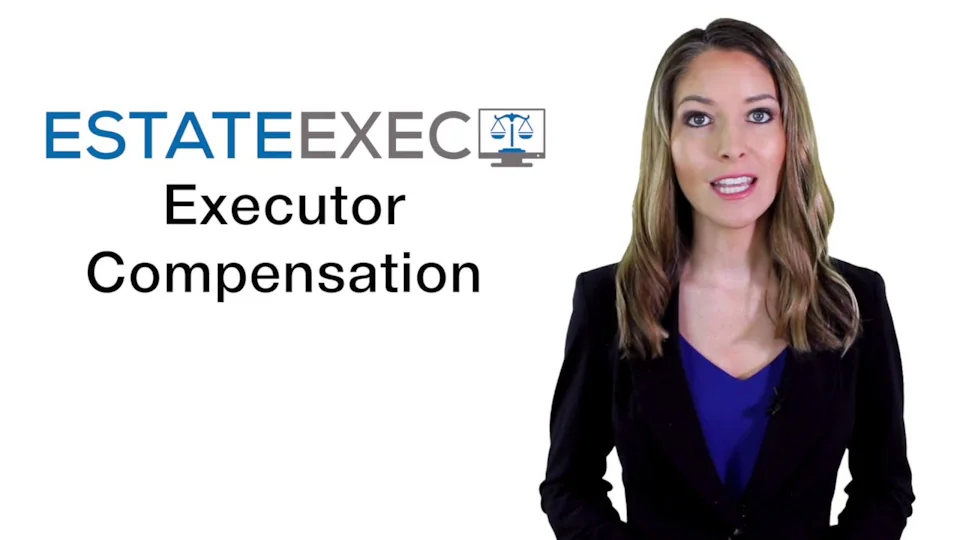Executor Fee Calculator (KY)
If the will does not specify how executor compensation should be calculated, KY estates must follow state compensation rules.
Click to scroll to KY Fee Calculator.

How Much Should an Executor be Paid in KY?
In Kentucky, executor compensation is determined as a percentage of the personal estate value, not to exceed 5%, unless the will states otherwise.
- Typically, the larger the estate, the smaller the percentage
- Real estate is NOT considered part of the personal estate, so should not be included in the calculation
- You should also exclude assets that automatically transfer to others, such as assets owned in joint tenancy, assets payable on death with named beneficiaries (e.g., 401Ks, life insurance policies), and other standard probate exclusions.
The executor is also entitled to 5% of any estate income collected by the executor. If taxes on income must be withheld, the amount withheld still counts as income received for this calculation.
So for example, a Kentucky estate with a value of $500K (considering the exclusions above), and $35K of income during the administration period, could generate up to $26,750 in executor compensation.
Finally, the court can also allow additional compensation for "extraordinary" services, such as overseeing the sale of real estate, running a business, conducting litigation, preparing tax returns yourself, handling tax audits, and so on.
KY Compensation Calculator
EstateExec provides the following executor compensation estimator for KY estates, but please keep in mind that circumstances may vary, and that there may be special situations addressed by local custom or law. By using this estimator, you acknowledge that EstateExec provides any results as informational input only, not as legal advice, and cannot be held responsible for any inaccuracies for, or misunderstandings about, any given estate.
You can use this calculator now, but if you use EstateExec to help you track the settlement process, it will automatically perform the sometimes complex calculations to provide inputs for the fields below (you can create an estate for free).
Executor Compensation Considerations
Timing: Generally, any executor compensation is paid during the final stages of estate distribution, as one of the last things the executor does. Be careful in situations in which there is not enough to pay yourself and all other outstanding debts, as this may expose you to legal issues. However, in most states, executor compensation has precedence over almost all other debts (for example, in NY, only funeral expenses have a higher precedence).
Communication: You may wish to discuss your compensation with the other heirs early during the process, so they don't end up surprised and unhappy when they notice their shares are somewhat less than expected. You may also want to leave the door open to modify your planned compensation as the process unfolds and you determine how much or how little work will actually be required on your part.
Optional: Keep in mind that collecting executor fees is optional. Even if the will specifies compensation, or if state laws support specific fees, the executor can choose to forego that compensation, and many do. That being said, serving as an executor is A LOT of work, and there's a reason that state laws support such compensation.
Tax Optimization: One reason an executor might choose to forego explicit compensation is that executor compensation is taxable, while inheritances are generally not taxable. Consequently, if the entire estate (or a large portion of it) is going to be inherited by the executor, you may end up with more after-tax value if you forego executor compensation.
Trusts: Note that trustee compensation for managing a trust is handled differently than that of executor compensation for settling an estate (see Trustee Compensation).
Expense Reimbursement: In addition to compensation for his or her services, an executor is also entitled to reimbursement from estate proceeds for legitimate and reasonable estate administration costs, such as death certificate copies, notarization of documents, the EstateExec licensing fee, and even travel costs strictly associated with managing the estate. Once you have established an estate banking account, you can often pay for these costs directly from that account, so that no reimbursement is necessary, but you should keep good records in case you later have to justify your expenditures to the IRS or to estate heirs. Executor expenses can be reimbursed when desired, although certain probate proceedings may require prior approval. While executor expenses are generally not considered when calculating executor compensation (i.e., executor fees), if the executor incurs substantial costs paying for services that would normally be directly handled by an executor, a probate judge may sometimes require that the default executor fee be reduced accordingly.
EstateExec™ Makes It Easy!
Think of EstateExec as something like TurboTax®, but for estate executors.
With $$ coupons.
EstateExec includes state-specific guidance with AI software, easy financial accounting,
and even the option to work together online with your lawyer or other interested parties.
You can get started using EstateExec for free,
and if you find it useful, pay a one-time $199 licensing fee (per estate).
Plus, EstateExec provides coupons for discounts on helpful third-party services,
such as junk removal, which will more than pay for the license price!
Additional Information
See also the EstateExec Complete Executor Guide.
In case you're interested, see also Compensation for general remarks on executor compensation, and note that authoritative details about executor fees in other states can be found here: